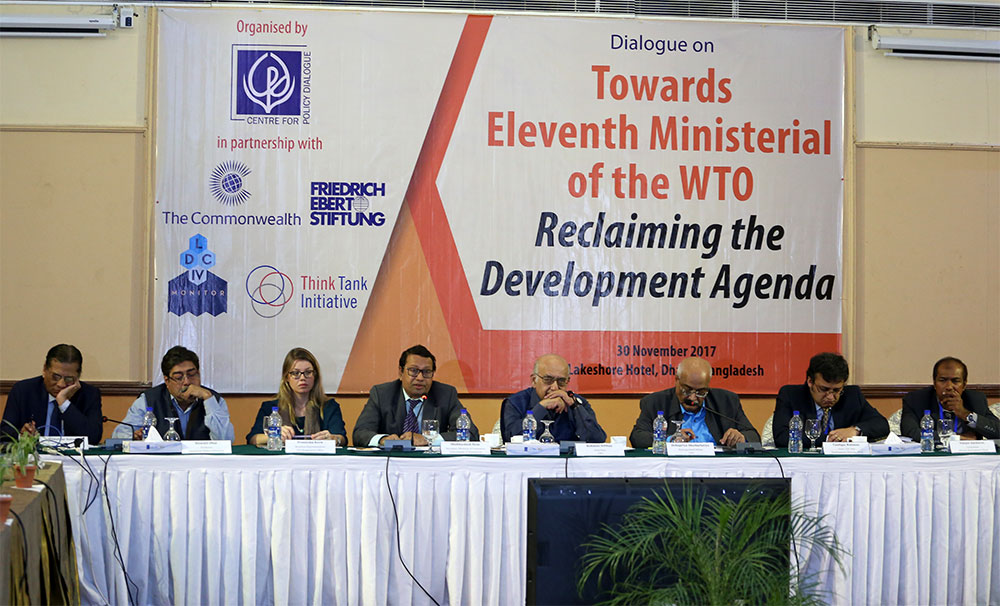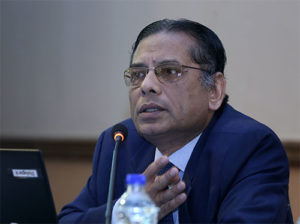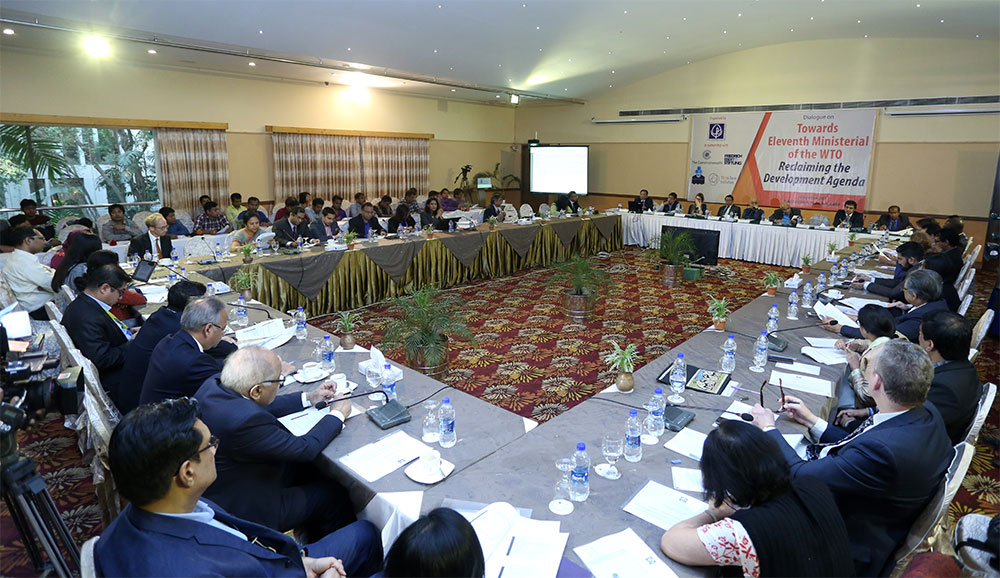
Bangladesh is currently at a crossroads regarding its least developed country (LDC) status – while it will tread on the pathway towards transforming into a developing country by 2018, it cannot escape the reality of remaining an LDC for the next 10 years. The country needs to pursue its strategies to maximise its benefits as an LDC, and at the same time, keep an eye on issues of interest and concern for the developing countries. Bangladesh, thus would have to approach the upcoming WTO ministerial in Buenos Aires with “dual character”.
These comments emerged at a public dialogue on “Towards Eleventh Ministerial of the WTO: Reclaiming the Development Agenda,” organised by the Centre for Policy Dialogue (CPD) on 30 November 2017 in Dhaka, in association with Commonwealth Secretariat (ComSec); Friedrich-Ebert-Stiftung (FES), Bangladesh Office; LDC IV Monitor and Think Tank Initiative (TTI).
 “Trump Phenomenon” and the role of EU, the global shift of powers which involves the gaining strength of BRICS countries and Asia as a region, were also discussed. Jobless growth in LDCs due to technology and automation, as well as the private sector’s interests to include discussions on compliance related issues in MC11, were also brought up. Overall, participants agreed that while the outlook on possible MC11 outcome is not reassuring, LDCs should keep all channels of communication and negotiation open, with regard to unfinished as well as emerging LDC issues.
“Trump Phenomenon” and the role of EU, the global shift of powers which involves the gaining strength of BRICS countries and Asia as a region, were also discussed. Jobless growth in LDCs due to technology and automation, as well as the private sector’s interests to include discussions on compliance related issues in MC11, were also brought up. Overall, participants agreed that while the outlook on possible MC11 outcome is not reassuring, LDCs should keep all channels of communication and negotiation open, with regard to unfinished as well as emerging LDC issues.
Key conclusions drawn at the discussion include the following.
- With the global landscape undergoing massive transitions, attention must be paid to emerging powers (such as China and India), and how Bangladesh, other LDCs and developing countries can connect with them.
- WTO’s appeal body is facing serious challenges, its role in conflict resolution has been jeopardised. Strengthening and reformation of WTO has become important.
- Bangladesh plays a key role in negotiation on Duty-Free Quota-free Trade, and should remain engaged in the discussion. At the same time, it should initiate negotiations on new issues such as e-commerce and fisheries subsidies.
- Bangladesh needs to explore alternate platforms of dialogue as regards the global trading system.
- LDCs need to put more emphasis on bilateral negotiation at the regional level. In this connection, capacity building of Bangladesh and other LDCs, is an issue that must be addressed.
- The 2030 Agenda should be addressed at the upcoming MC11 discussions in Buenos Aires.
At the dialogue, trade experts from India, Nepal, South Africa, Sri Lanka, Switzerland and UK, as well as relevant officials from the government and bureaucracy, private sector, civil society, knowledge community, and development partners in Bangladesh, took part in the discussion.




